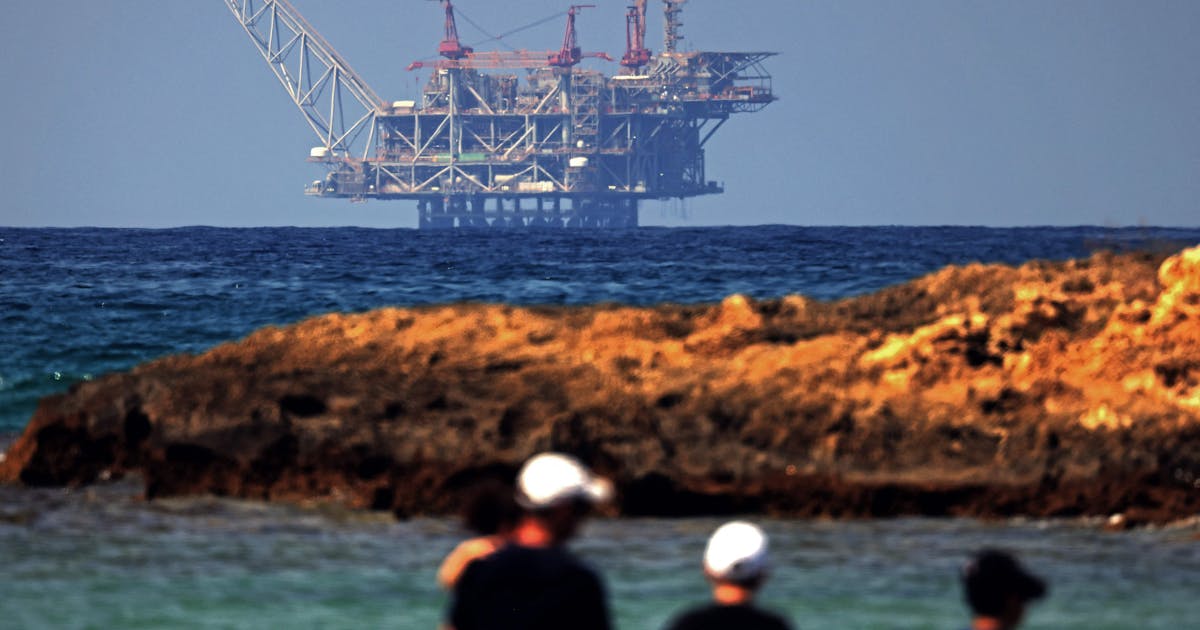
As Israel continues to bombard Gaza, fossil fuel companies are committed to continuing business as usual. Production at Israel’s Tamar gas field resumed on Monday after Chevron—which operates the field as a part-owner—received the go-ahead from the country’s Ministry of Energy; it had ordered production shut down in the aftermath of Hamas’s October 7 incursion into Southern Israel. The Tamar site sits about 12 miles off the coast of northern Gaza, where Israel’s Ministry of Energy has created a dire fuel shortage that has made aid work there virtually impossible amid a worsening humanitarian crisis. The U.N. Relief and Works Agency for Palestinian Refugees has reportedly run out of fuel to ferry supplies from the Rafah border crossing into the rest of Gaza.
Asked on an earnings call with analysts last month about whether the war in Israel-Palestine would alter Chevron’s ambitious plans for the Eastern Mediterranean, CEO Mike Wirth was clear. “It doesn’t change our view on the development opportunities really at all, “ he said. “This is a long-term play. It’s a very, very large gas resource.” The biggest prize there is the much-larger Leviathan gas field, further north, where operations have continued without interruption. Having generated a whopping $2.5 billion in revenue last year, Leviathan is also expected to produce an estimated 1.1 gigatonnes of carbon dioxide over the course of its life cycle. That makes it one of just 425 projects worldwide designated as “carbon bombs” that “significantly threaten the Paris Agreement climate targets.”
BP, while ever eager to boast about its alleged climate credentials, also wants in on the action at Leviathan. Last March, the company made a $2 billion joint bid with ADNOC—Abu Dhabi’s state-owned oil company, run by this year’s U.N. climate change conference president Sultan Ahmed Al Jaber—to buy up a 50 percent stake in the Israeli firm NewMed, which owns a 45 percent stake in Leviathan. BP confirmed over the last month that it remains committed to that deal, according to Bloomberg.
Having only begun operations in Israel in 2020, Chevron is working to expand operations at both Tamar and Leviathan as part of a plan to turn the Eastern Mediterranean into one of the world’s biggest energy hubs. It’s easy to see why the region is so attractive. It offers easy access to neighboring Egypt and Jordan but also to European countries now eager to ditch Russian gas. Israel is a key U.S. ally that’s far too small ever to use all the reserves it’s staked a claim to. The country has been an enthusiastic partner to international companies in transforming itself from a gas importer to a gas exporter; production in Israel hit record highs last year, led by the Leviathan, Tamar, and Karish fields. “We are a land flowing with milk, honey, and gas,” said Energy Minister Israel Katz, a hard-line member of Prime Minister Benjamin Netanyahu’s Likud Party. “Everyone in the region and the world wants to be connected with Israel because of natural gas.”
Israel accordingly keeps fossil fuel infrastructure in the Mediterranean heavily guarded. “We say that whenever a new offshore installation is approved in Israel the commander of the Israeli navy throws a party because that means he gets a couple of new warships to play with,” Sagi Ganot, the Ministry’s head of upstream regulation and trade, joked on a webinar late last year.
The United States, for its part, approaches fossil fuels in the Eastern Mediterranean as both a business opportunity for American companies and a means to further its own diplomatic aims in the region, premised on the idea that economic interdependence (in this case on gas) breeds stability. A U.S.-brokered agreement between Lebanon and Israel last year made it possible for international companies to start exploring for reserves in Lebanese waters, ostensibly resolving a tense dispute over which nation could claim which offshore reserves. More recently, the U.S. weighed in on behalf of Chevron in a dispute with Cypriot officials over the company’s development plans for the Aphrodite gas field.
As Israel continued to kill thousands in Gaza, the Energy Ministry announced in late October that it had granted licenses to six companies to explore for gas in the Mediterranean. Winners included BP, the Italian firm Eni, and SOCAR, Azerbaijan’s state-owned oil company. “Even now, major natural gas exploration companies put their trust in Israel’s robustness and want to invest here,” Katz wrote in the announcement.
As might be expected, Palestinians have been broadly excluded from Israel’s newfound Mediterranean wealth. Israel has for nearly 30 years blocked development of gas fields located plainly within the marine borders of Gaza, where access to fuel, electricity, and water has been tightly controlled by Israel since its blockade began in 2007. As recently as September, the Israeli government had seemingly agreed to allow Egypt to partner with the Palestinian Authority to develop a gas field known as Gaza Marine, containing around one trillion cubic feet of gas. The current status of that deal remains unclear; a spokesperson for the Israeli Energy Ministry declined to comment. Government officials, meanwhile, including Netanyahu, have grown increasingly brazen in their calls to eventually control all of Gaza.
"gas" - Google News
November 15, 2023 at 12:31AM
https://ift.tt/R146NaH
Fossil Fuel Companies Are Plowing Ahead to Profit From Israeli Gas - The New Republic
"gas" - Google News
https://ift.tt/UNnCy9a
https://ift.tt/fOaQqRW
Bagikan Berita Ini














0 Response to "Fossil Fuel Companies Are Plowing Ahead to Profit From Israeli Gas - The New Republic"
Post a Comment